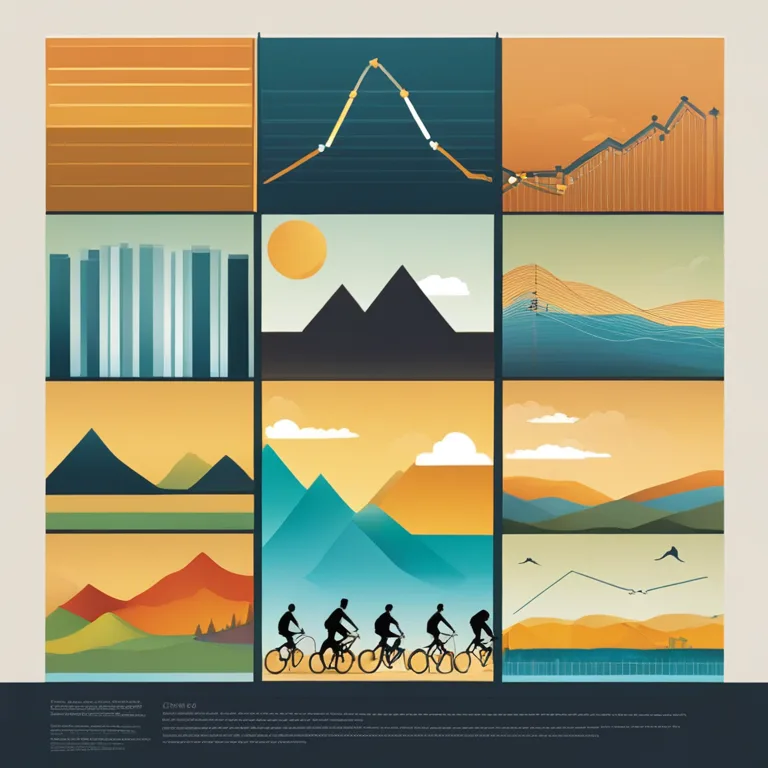
The Rhythms Within: Biorhythms Impact on Psychology
Discover how biorhythms play a significant role in psychological well-being and personal insight, shaping daily life and mental states.
article by Adrian Wallace
The Basics of Biorhythms
The concept of biorhythms lies at the intersection of biology and psychology, proposing that our daily lives are influenced by natural, innate cycles. These biorhythms are thought to regulate various physical, emotional, and intellectual facets of our being, affecting our performance, mood, and overall well-being. According to the theory, each person has three fundamental cycles: a 23-day physical cycle, a 28-day emotional cycle, and a 33-day intellectual cycle. With roots stretching back to the early 20th century, biorhythms have been both scrutinized and celebrated for their impact on human behavior.

Biorhythms and Daily Functioning
The intersection of biorhythms and daily functioning is a subject of ongoing interest in psychological circles. The theory posits that our ability to succeed in tasks, process emotions, and generate ideas is inextricably linked with the ebb and flow of our biorhythmic patterns. When these cycles are in the 'high' phase, one might feel at the peak of their abilities; conversely, during the 'low' phase, the same tasks might feel challenging. Recognizing these patterns in oneself could potentially lead to improved personal management and mental health strategies.

Critical Perspectives on Biorhythms
Despite popular interest, biorhythms have faced skepticism from parts of the scientific community. Critics argue that there is insufficient empirical evidence supporting the existence of biorhythms or their effects on psychology and behavior. Some dismiss it as pseudoscience, urging that factors such as genetics, environment, and personal experiences play a much larger role in our psychological make-up. This ongoing debate highlights the complexity of human psychology and the need for continuous exploration and validation of theories within the scientific method.

Biorhythms in Modern Psychological Practice
The application of biorhythms in contemporary psychological practice often involves holistic approaches that consider physiological states alongside mental health. Some practitioners may use biorhythmic tracking as a tool for discussing lifestyle balances and mental health management with clients, thereby fostering self-awareness and proactive coping mechanisms. While not universally accepted, the integration of biorhythms into wellness plans has become an area of innovation, especially in the realms of personal coaching and self-help methodologies.

Technological Advances and Biorhythm Analysis
In recent years, technology has revolutionized how we access and analyze our personal biorhythms. Wearable tech and mobile applications offer users a way to track their physical and emotional states, potentially aligning these with biorhythmic predictions. This data can be enlightening, providing individuals with insights into their best times for productivity, rest, and emotional processing. The fusion of psychological theories with technological tools illustrates the dynamic nature of modern psychological exploration.
Biorhythms for Personal Growth and Harmony
Embracing the concept of biorhythms goes beyond the ambit of academia and enters the realm of personal development. Those who engage with their biorhythm cycles often report enhanced self-knowledge, leading to a harmonious balance between work, relationships, and personal time. As our understanding of personal cycles deepens, the potential for biorhythms in aiding psychological alignment and optimizing lifestyle choices becomes more intriguing and practical.
Published: 12/28/2023
Modified: 12/28/2023
More predictions
Come back here soon to learn more about yourself and your future


The Practical Uses of Biorhythms in Our Lives
Discover how biorhythms can be applied to improve well-being and achieve a better understanding of personal cycles in health, decision-making, and relationships.


The Rhythms of Life: Delving into Biorhythm
Discover how biorhythm cycles influence your physical, emotional, and intellectual wellbeing, and how to track these patterns for optimal living.


The Origins of Biorhythm Theory Explored
Discover the historical and scientific roots of biorhythm theory, the concept that seeks to predict personal cycles of health, emotion, and intellect.